Top 20 Heart-Harming Foods You Should Avoid
When it comes to heart health, your diet plays a pivotal role. Consuming the right foods can boost your heart’s health, while the wrong ones can increase your risk of heart disease. As part of our commitment to promoting heart health awareness, we’ve compiled a list of the 20 worst foods for your heart. You might want to consider consuming these items in moderation or eliminating them from your diet.
Hot Dogs

Hot dogs are a popular and widely consumed food item, usually made up of ground beef, pork, or poultry mixed with salt and other seasonings. They are often served in a bun and topped with ketchup, mustard, pickles, or onions.
While hot dogs may seem harmless, they are high in saturated fat, cholesterol, sodium, and nitrates – all of which can have a negative effect on your heart. Eating hot dogs too often can increase your risk of developing high cholesterol and type 2 diabetes, which is linked to heart disease.
Bacon

Bacon is a breakfast staple that has been around for centuries. The pork product comprises cured, salted, and smoked pork belly and is usually served with eggs, toast, or pancakes. Who doesn’t love bacon?
Unfortunately, Bacon is packed full of unhealthy fats and sodium. High levels of saturated fat and sodium can damage your cardiovascular system, and overeating bacon can increase your risk of having a stroke or heart attack.
Soda
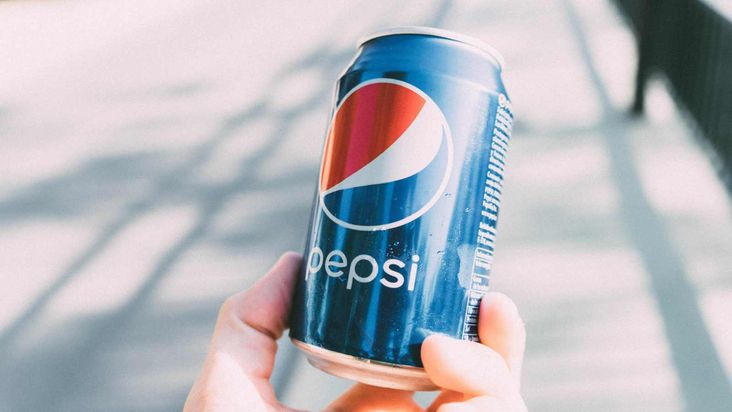
Sodas are among the most popular drinks in the world, but they are also some of the worst for your heart. Most sodas contain high levels of sugar and artificial sweeteners, which contribute to weight gain, insulin resistance, and type 2 diabetes – all of which can lead to heart problems.
The caffeine in soda has also been linked to increased blood pressure, which can worsen existing heart conditions. Try limiting your soda intake and choose water, a healthy homemade smoothie, or a seltzer.
Rotisserie Chicken

Rotisserie chicken may seem healthy, but it is loaded with unhealthy fats and sodium. The skin of the chicken is high in saturated fat, and the roasting process typically involves adding a lot of salt to the meat.
The combination of unhealthy fats and sodium can cause your blood pressure to rise, straining your heart. Try opting for plain, grilled, or baked chicken to reduce your risk of developing heart problems. Better still, cook your chicken at home for complete control over what goes into it.
Butter

Butter is made from cow’s milk and is often used in baking, cooking, and spreading on toast. Butter is an essential source of fat in our diets, but it also contains high levels of saturated fat.
Overeating butter can increase your risk of developing high cholesterol, damaging your heart over time. Choose alternatives like olive oil or avocado oil to reduce the amount of saturated fat in your diet.
White Rice

White rice has been a staple food in many cultures for centuries, but it is not necessarily the healthiest option. White rice comprises simple carbohydrates, which can cause blood sugar spikes if eaten regularly.
High sugar levels over time can cause your body to become resistant to insulin, leading to type 2 diabetes, which can be dangerous for your heart. Consider brown rice or quinoa instead; these healthier alternatives give you all the nutrients you need without the added sugar.
Canned Soup
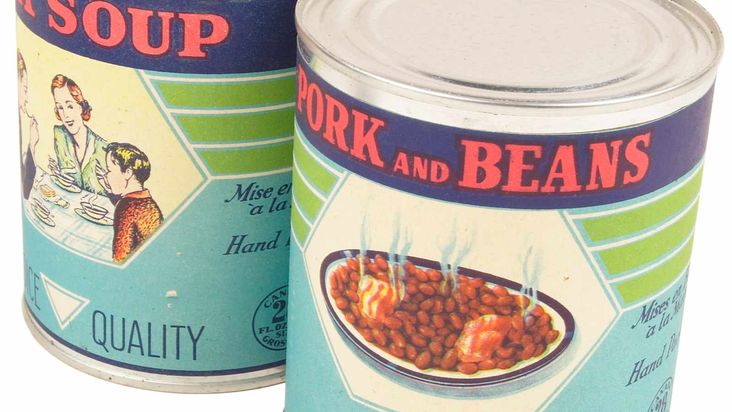
Canned soup is a pre-made, commercially prepared food from processed vegetables, broth, cream or yogurt, and other ingredients. Canned soup is convenient and tasty, but it often contains high levels of sodium that increase your risk of developing high blood pressure. High blood pressure is one of the primary factors for heart disease and stroke.
Additionally, canned soups may contain unhealthy trans fats that can contribute to bad cholesterol buildup in your arteries. Canned soup can affect your heart health and increase your risk of developing serious conditions like coronary artery disease or stroke. To reduce this risk, make your soups with fresh ingredients whenever possible.
Ketchup
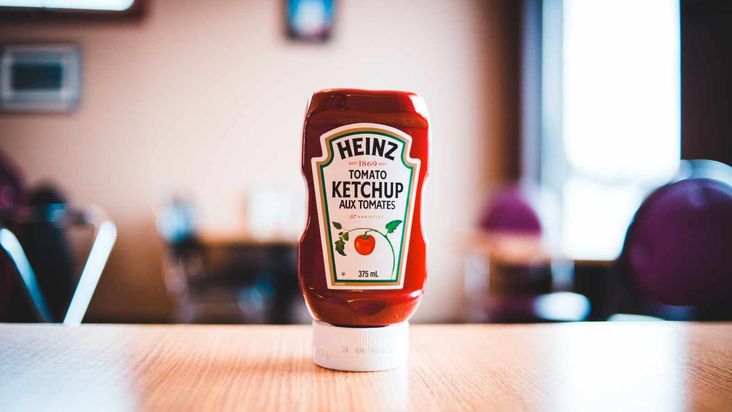
Ketchup is an American staple; most of us can’t eat a hamburger without it. Unfortunately, ketchup is high in salt and sugar, which are not good for your heart.
Consuming too much sugar or salt can increase your risk of developing high blood pressure or obesity, linked to heart disease. Only consume low-sodium ketchup or make yours at home with fresh ingredients to cut down on sugar and salt.
Red Meat
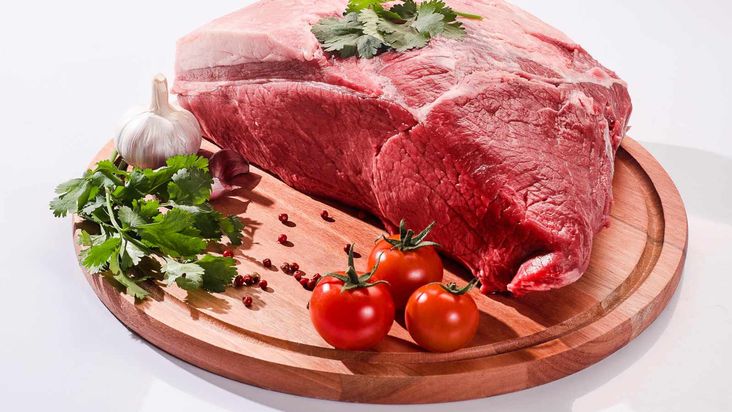
Red meat is a source of protein and vitamins but also contains high levels of saturated fat. Red meat can increase your risk of developing high cholesterol and heart disease.
Try limiting your intake of steak and hamburgers to once or twice a month and choose leaner cuts like chicken breast or fish instead. You can also opt for plant-based proteins such as beans, lentils, and nuts to get the protein you need without all the saturated fat.
French Fries
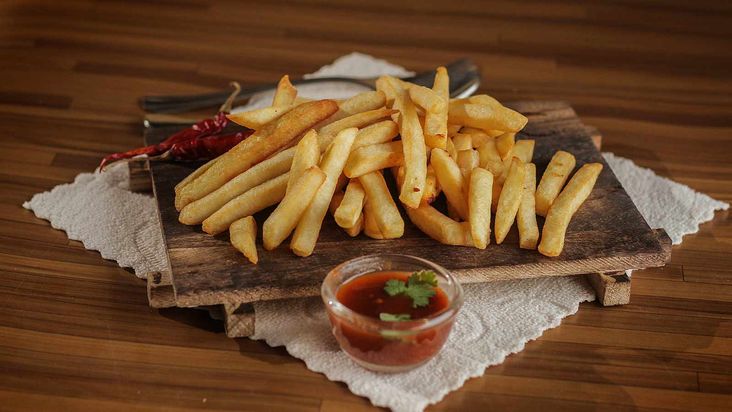
French fries are a beloved comfort food, but they are also loaded with fat, refined carbs, and salt. Eating too many fried foods can raise your cholesterol levels, putting you at risk of developing heart disease.
You can choose sweet potatoes or other root vegetables as a healthier alternative. But if you must eat French fries, make it at home with a light coating of oil and try to limit your portions.
Pizza

Pizza is another American favorite, but it’s not good for your heart. Pizza is typically high in fat and sodium, a recipe for high blood pressure and an increased risk of heart disease.
You’re better off with homemade pizza. Use whole wheat dough and light cheese, and top it with healthier options like veggies, chicken, and lean meats. You can make a veggie-packed white pizza to get your dose of healthy nutrients without all the fat.
Diet Soda

Diet soda is often considered a healthier alternative to regular soda, but it can adversely affect the heart. Diet soda is made with artificial sweeteners, which are linked to an increased risk of obesity and type 2 diabetes.
Also, people who drink diet soda tend to overcompensate and consume more calories from other sources, leading to weight gain and a higher risk of developing heart disease. You’re better off drinking healthier alternatives, including seltzer water, tea, or fruit juice.
Alcohol

Alcohol can be a part of a healthy lifestyle in moderation, but it can also increase your risk of developing heart disease if consumed in excess. Too much alcohol can raise your blood pressure and cholesterol levels, putting you at risk of stroke and heart attack.
If you choose to drink, stick to one or two drinks at most and opt for low-calorie options such as light beer or wine. You should also drink plenty of water between alcoholic drinks to keep your heart healthy.
Flavoured Yogurt
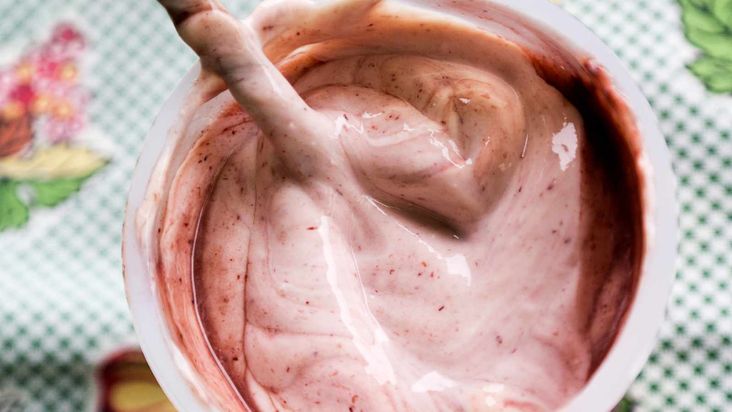
Many pre-packaged flavored yogurts are high in sugar, and high added sugar consumption can lead to weight gain and an increased risk of heart disease.
Make your yogurt using plain Greek yogurt as a base, and add fresh fruit or honey for natural sweetness. And if you must buy yogurt from a store, always check the label for added sugars and pick lower-sugar options whenever possible.
Potato Chips

Potato chips are a classic snack but are loaded with fat and salt. Eating too many potato chips can raise your cholesterol levels and increase your risk of developing heart disease. Also, it’s high in calories, providing 536 calories per 100 grams.
Try opting for healthier snacks such as air-popped popcorn, nuts, or seeds instead. You can also make your potato chips using lower-fat oils such as olive oil and spices for flavor.
Ice Cream

Ice cream is a popular treat but full of sugar and saturated fat. Overeating ice cream can lead to weight gain and an increased risk of heart disease. Choose healthier alternatives such as frozen yogurt or homemade ice cream using low-fat milk and natural sweeteners like honey. You can also opt for sorbets or fruit-based desserts with lower added sugar.
Sugary Cereal

Sugary cereals are a popular breakfast food, but some contain sugar and refined carbs. Sugary cereal can lead to weight gain, an unhealthy gut microbiome, and an increased risk of heart disease. Avoid cereals with 8 grams of sugar per serving or more. Or, instead of sugary cereals, go for high-fiber options like oatmeal or shredded wheat.
Fried Chicken
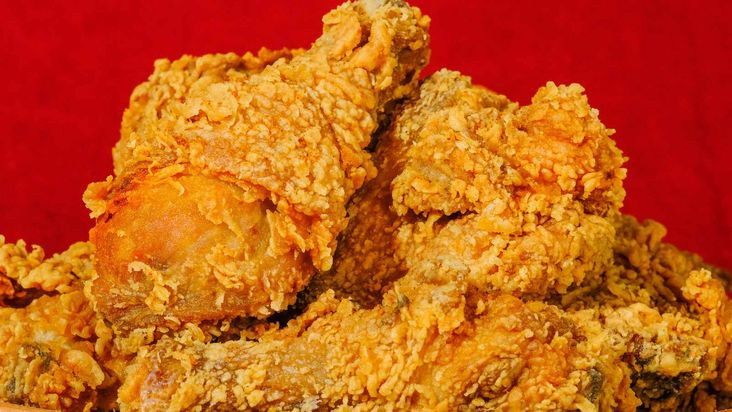
Fried chicken is a popular American staple but is high in fat and calories. Fried chicken can raise cholesterol levels and increase your risk of heart disease. Instead, opt for healthier alternatives such as grilled or baked chicken. You can also marinate the chicken in herbs and spices to add flavor without all the grease.
Capers
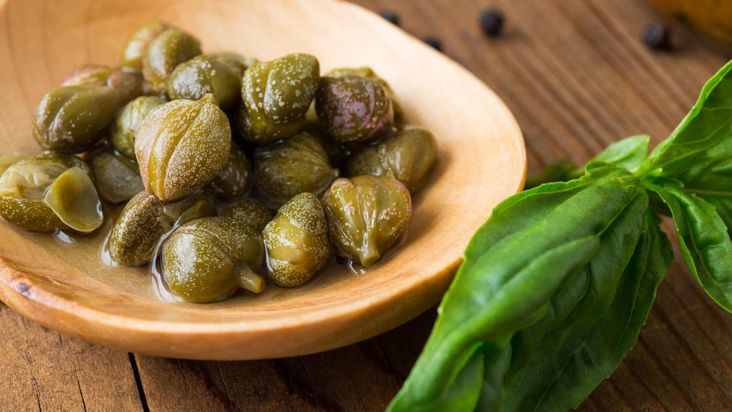
Capers are a popular addition to many dishes, but they’re high in salt, raising your blood pressure and increasing your risk of heart disease. Choose flavorful ingredients to add to your dishes, such as herbs, spices, or nuts. You can also get low-sodium capers if you still want that flavor without all the extra salt.
Pastries

Pastries are made with refined flour and added sugar and can lead to weight gain, an unhealthy gut microbiome, and an increased risk of heart disease. Choose healthier alternatives like fresh fruit or homemade desserts with natural sweeteners like honey. You can also opt for whole-grain pastries with moderate added sugar.